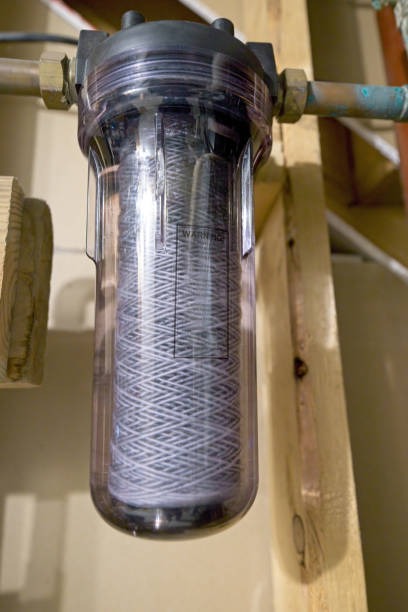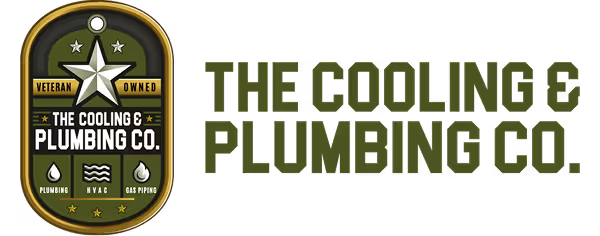Water Conditioner Installation in Fountain Hills, AZ
Hard water is one of the most common long-term headaches for Fountain Hills homes. High mineral content from calcium and magnesium builds scale inside water heaters, plumbing, fixtures, and irrigation lines, reducing efficiency and shortening equipment life. A properly selected and installed water conditioner protects plumbing, preserves appliance performance, and reduces the need for aggressive cleaning—especially important in Fountain Hills where mineral-rich municipal and well water mixes with desert heat and frequent irrigation cycles.

Why water conditioning matters in Fountain Hills, AZ
- Fountain Hills water often carries elevated hardness and mineral content that accelerates scale formation in hot water systems and on showerheads and fixtures.
- High water temperatures and long run times (pool filling, irrigation) increase scale precipitation.
- Scale buildup reduces water heater efficiency and can lead to premature replacement of tanks and tankless units.
- Homes with water-using features such as spas, evaporative coolers, or extensive irrigation systems see faster impacts from untreated hard water.
Water conditioner types and how they differ
Understanding technology differences helps match a solution to your water profile and household priorities.
Salt-based ion exchange softeners
- How they work: Replace hardness minerals with sodium or potassium ions using a resin tank that regenerates with brine.
- Benefits: Removes hardness, giving true soft water that prevents scale, improves soap performance, reduces spotting, and extends appliance life.
- Considerations: Requires space for salt storage and a drain for regeneration. Adds sodium to water (potassium is an alternative), and periodic maintenance is needed to refill salt and clean the brine tank.
Salt-free descalers and Template-Assisted Crystallization (TAC)
- How they work: Condition minerals rather than remove them. TAC converts dissolved hardness into microscopic crystals that stay suspended and cannot adhere to surfaces.
- Benefits: No salt, no discharge to drain, lower maintenance, good for plumbing protection and where salt discharge is restricted or you want to avoid added sodium.
- Considerations: Performance varies by hardness level and water chemistry. Salt-free systems do not produce the same “soft” feel as ion-exchange systems and do not reduce hardness for soap performance.
Electronic or magnetic descalers
- How they work: Use electromagnetic fields to alter mineral behavior. Results vary widely and depend on plumbing materials and water composition.
- Benefits/limits: Low maintenance and easy to install but inconsistent performance; not recommended as a primary solution for very hard or complex water profiles.
Whole-house filtration combos
- Many installations combine a water conditioner with pre-filtration (sediment, carbon) to protect the conditioner media and reduce chlorine or particulates that can shorten system life.
Suitability by water profile and household needs
- Municipal water with moderate hardness: Salt-free TAC systems often deliver excellent scale control without salt. Ion-exchange softeners are preferred if you want the feel of true soft water for bathing and laundry.
- Very hard water (high grains per gallon): Ion-exchange softeners typically provide the most reliable scale prevention and appliance protection.
- Well water with iron/manganese: Requires pre-treatment (oxidation or specific filters) before any conditioner to prevent media fouling.
- Homes on septic systems or with irrigation restrictions: Salt-free systems are often recommended to avoid salt discharge.
Typical installation process and site requirements
- Water testing: Comprehensive hardness, iron, manganese, TDS, pH, and chlorine test to recommend the right technology.
- Location selection: Near main cold-water shutoff, with enough clearance for tanks, bypass valves, and access for maintenance. Indoor installation usually preferred in the Phoenix area to limit UV exposure and temperature extremes.
- Plumbing needs: Bypass valve, shutoffs, and adequate pipe connections. Salt-based systems require a drain connection for regeneration; salt-free and TAC typically do not.
- Electrical and space: Some electronic descalers require a small power source; most TAC and salt-based systems do not need dedicated power.
- Pre-filtration: Sediment and carbon filters may be installed ahead of the conditioner to extend lifespan and protect media.
Expected performance and benefits
- Scale prevention: Properly matched systems can significantly reduce scale buildup, preserving water heater efficiency and reducing repair frequency.
- Plumbing protection: Conditioned water reduces deposits in pipes, faucets, and irrigation, extending component life.
- Energy and maintenance savings: Less scale means water heaters and boilers operate more efficiently, and fixtures need less frequent descaling.
- Water quality effects: Ion-exchange systems produce softer water for improved soap lather and spot-free dishes; salt-free systems reduce scale but keep mineral content.
Maintenance and lifecycle
- Salt-based softeners: Regular salt refills and periodic resin checks. Resin typically lasts many years but may require replacement eventually. Annual service recommended to check settings and valve function.
- TAC and salt-free systems: Media cartridges or tanks may require replacement every several years depending on manufacturer recommendations and water usage. Minimal routine maintenance otherwise.
- Filters: Pre-filters (sediment, carbon) usually require scheduled cartridge changes to prevent fouling.
- Warranties and expectations: Lifespan varies by brand and use; a professional site assessment will outline expected maintenance intervals and coverage.
Product comparisons at a glance
- Salt-based softener: Best for high hardness levels and households prioritizing true soft water; requires salt and drain.
- TAC / Template-assisted crystallization: Best for scale prevention without salt discharge; low maintenance and environmentally friendly, ideal for Fountain Hills where irrigation and septic rules matter.
- Electronic descalers: Low maintenance but inconsistent results; suitable as supplemental protection in lower-risk scenarios.
Cost considerations and financing options
- Investment depends on system type, home size, necessary pre-treatment, and complexity of installation.
- Financing and payment plans are commonly available for home water systems to spread upfront cost over time. Factors that affect overall cost include the need for water testing, pre-filters, plumbing modifications, and any required electrical work.
- A site assessment determines the exact scope and financing suitability for your property.
Common use cases in Fountain Hills
- Older homes with original plumbing experiencing scale-reduced water flow or recurring water heater issues.
- New builds or remodels where long-term plumbing protection is a priority.
- Properties with irrigation systems and pools that suffer from mineral encrustation.
- Households concerned about sodium intake or septic system compatibility seeking salt-free options.
What a professional site assessment includes
- On-site water sampling and lab or handheld testing for hardness, iron, pH, and TDS.
- Inspection of plumbing layout, water heater condition, drainage, and available installation space.
- Recommendations on system type, pre-treatment needs, maintenance schedule, and estimated system life.
- An installation plan outlining required connections, required permits if any, and a projected timeline.
Choosing the right water conditioner for a Fountain Hills home means balancing performance, maintenance, environmental considerations, and plumbing constraints. A targeted water test and site assessment will identify the most effective solution for scale prevention and long-term plumbing protection in the local desert climate.






